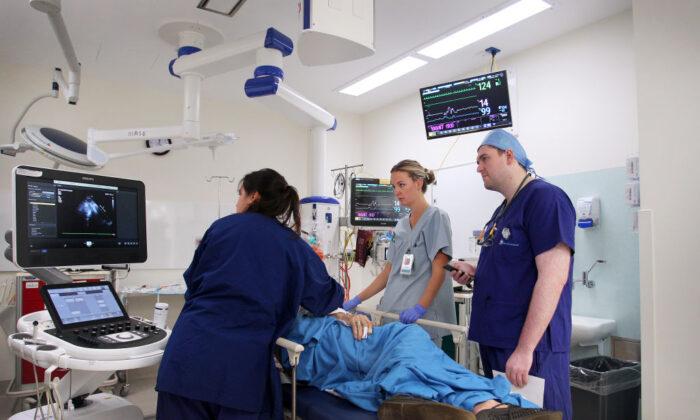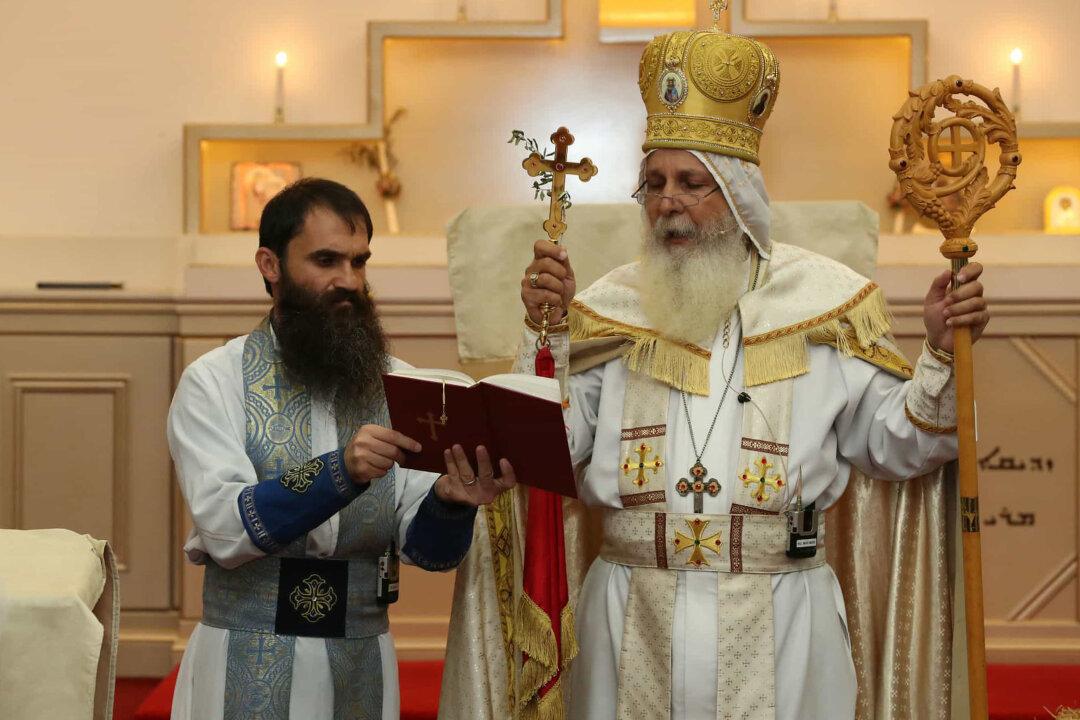The Australian federal government is smoothing the way for teachers and healthcare workers to settle in the country by shortening the time needed to assess their skilled visa applications to only three days as national skill shortages loom.
The move comes after recent data from the National Skills Commission shows that healthcare and social assistance has become the largest employment industry and is projected to create 301,000 new jobs—15.8 percent of all new jobs in the economy—over the five years to November 2026.
Meanwhile, the education and training sector is predicted to generate 149,000 new jobs—13.4 percent of all new jobs over the next five years, with school education being the largest sector in the industry.
Notably, females dominate both the healthcare and education industries, accounting 75.9 percent and 73 percent of the workforce respectively.
A spokesperson for the Home Affairs Department told SBS News on Dec. 16 that visas in the health and education sectors “are now being assessed in three days.”
The Home Affairs Department on Nov. 4 said that the Ministerial Direction No. 100 “formalises the Australian government’s processing priorities for the health and education sectors.”
In particular, the skilled visa applications are processed in the following order of priority:
1. Visa applications in relation to a healthcare or teaching occupation
2. For employer sponsored visas, visa applications where the applicant is nominated by an approved sponsor with accredited status.
3. Visa applications in relation to an occupation to be carried out in a designated regional area.
4. For permanent and provisional visa subclasses, visa applications that count towards the migration program, excluding the Subclass 188 (Business Innovation and Investment (Provisionala)) visa
5. All other visa applications.
Occupation List Scrapped
In addition, under the new ministerial direction, the government, starting from Oct. 28, ceased the Priority and Migration Skilled Occupation List (PMSOL), which was used to rank skilled visa applications.
“The PMSOL was outdated and no longer reflected the critical workforce shortages seen across Australia,” Home Affairs said in a statement.
The department noted that the change aims to “help small businesses seeking to recruit overseas workers and speed up processing for all occupations and make the process less complicated,” particularly for the critical Temporary Skill Shortage visa, which is “designed to respond quickly to labour market needs.”
The following skilled visas are subject to Ministerial Direction No. 100:- Subclass 124 (Distinguished Talent)
- Subclass 186 (Employer Nomination Scheme)
- Subclass 187 (Regional Sponsored Migration Scheme)
- Subclass 188 (Business Innovation and Investment) (Provisional)
- Subclass 189 (Skilled - Independent)
- Subclass 190 (Skilled - Nominated)
- Subclass 191 (Permanent Residence (Skilled Regional))
- Subclass 457 (Temporary Work (Skilled))
- Subclass 482 (Temporary Skill Shortage)
- Subclass 489 (Skilled - Regional (Provisional))
- Subclass 491 (Skilled Work Regional (Provisional))
- Subclass 494 (Employer Sponsored Regional (Provisional))
- Subclass 858 (Global Talent)
- Subclass 887 (Skilled - Regional)
- Subclass 888 (Business Innovation and Investment (Permanent))
The proposal to stop the PMSOL was put forward to the government by the Productivity Commission.
The commission has also cited a report from Australian think tank Grattan Institute, which suggested that the government should lift the income threshold for Temporary Skilled Shortage visa from from $53,900 to $70,000 a year.
Migration Among Top Concerns In Jobs And Skills Summit
Addressing skills shortages and strengthening the migration system was also among the priorities in Labor’s Jobs and Skills Summit in early September.
One of the summit’s key outcomes (pdf) included the boost of the permanent migration intake to 195,000 places in 2022-23—an increase of 35,000 places.
Labor will also invest over $36 million in additional funding to fast-track visa processing and resolve the visa backlog, extend the relaxation of work restrictions for students until June 30, 2023, and increase the duration of post study work rights for recent graduates in specified areas.
“The idea that you train someone and bring them out here for a couple of years and then go and try and find someone else to do the same job is, in my view, incredibly inefficient and part of a way that the IR system is potentially undermined. Far better to give someone a sense of ownership and a stake in this country,” Prime Minister Anthony Albanese said of the temporary skilled workers.
“It’s not just about numbers. It’s about how we do this beyond—yes, addressing the urgent needs which are there in particular professions, but also in areas like hospitality there’s massive skills shortages.
But opposition leader Peter Dutton, who did not participate in the summit, criticised the event for its high portion of union representatives, which now represent less than 14 percent of the Australian workforce.
Dutton said he’s concerned that the decisions made at the summit, such as increasing minimum wages and introducing multi-level bargaining, will be “in the best interests of the union bosses, not the workers” and “will make a bad situation worse.”
“I am worried about a summit where the unions are calling for higher taxes, for economy wide strikes that will cripple small business, the supply chains close down,” Dutton said in August.
“And at a time when cost of living pressures are being made worse by this government, we just don’t want an extra layer of pressure on families and small businesses.”




